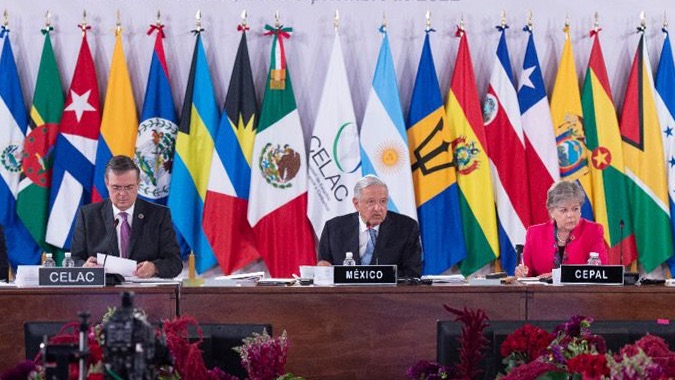Cultivating Future Leaders: Youth Civic Engagement and Empowerment in the Americas
The Americas are at a critical juncture. A burgeoning, diverse youth population possesses the transformative potential to address societal challenges and forge a more equitable future. However, realizing this potential necessitates a strategic and concerted effort to empower young people and foster their active participation in civic life. This article analyzes key initiatives to cultivate future leadership across North and South America, drawing upon relevant theories and models of youth development and community engagement.
Conceptual Framework: Positive Youth Development (PYD) and Social Cognitive Theory (SCT)
This analysis is framed by Positive Youth Development (PYD), a framework that emphasizes the strengths and assets of young people, fostering their growth in five core domains: social competence, bonding, self-efficacy, academic achievement, and prosocial behaviors. Furthermore, Social Cognitive Theory (SCT) underpins the understanding of how observational learning, self-efficacy, and environmental influences shape youth behavior and engagement in civic activities. These theories will guide the examination of successful youth empowerment strategies.
1. Promoting Youth-Led Initiatives and Social Entrepreneurship: Empowering youth is not simply beneficial but crucial for societal progress. By providing tailored resources, mentoring, and access to funding (akin to applying the asset-based community development model), we can harness their innovative spirit and energy to drive impactful change. This aligns with PYD's emphasis on youth agency and self-efficacy.
2. Fostering Civic Engagement through Experiential Learning: Active participation in community projects—volunteerism, advocacy, and social entrepreneurship—cultivates a sense of civic responsibility and leadership. This aligns with SCT's principles of observational learning and behavioral modeling, where young people learn by participating and observing successful civic engagement. Structured programs offering opportunities for service-learning can maximize this impact.
3. Addressing Societal Challenges through Collaborative Problem-Solving: The Americas confront significant obstacles—inequality, environmental degradation, and disparities in access to essential services. Engaging youth in collaborative problem-solving (mirroring participatory action research methods) equips them with critical skills and fosters a sense of ownership in addressing these issues, fostering a sense of collective efficacy. The collaborative nature of these initiatives contributes to social capital formation.
4. Leveraging Technology for Enhanced Connectivity and Collaboration: Digital platforms facilitate communication, resource sharing, and the dissemination of best practices among youth organizations across geographical boundaries. This networked approach strengthens collaboration, amplifying the impact of individual initiatives—a demonstration of the power of social networking and the diffusion of innovations.
5. Ensuring Equitable Access and Inclusive Participation: Targeted initiatives are essential to reach marginalized and underrepresented youth, ensuring equitable access to opportunities. This inclusive approach addresses existing systemic inequalities and aligns with social justice principles. A focus on culturally relevant programming is crucial for successful outreach.
6. Strategic Partnerships for Systemic Change: Collaboration between educational institutions, government agencies, and community-based organizations is crucial for creating a supportive ecosystem for youth civic engagement. Integrating civic education into formal curricula (applying the principles of transformative learning) and establishing robust mentorship programs (applying principles of adult development theories) are vital components of a comprehensive strategy.
7. Advocacy and Policy Engagement: Youth participation in policy discussions and advocacy efforts is critical for shaping policies that impact their lives. Empowering youth to engage in respectful dialogue and influence decision-making processes is essential to creating a responsive governance structure. This requires leveraging effective advocacy models and building relationships with policymakers.
8. Capacity Building and Skill Development: Workshops and training programs equipping youth with leadership skills, project management, communication, and advocacy techniques are essential for sustainable impact. This capacity building approach strengthens individual and collective capabilities and aligns with human capital development theory.
9. Celebrating Achievements and Sharing Best Practices: Recognizing and celebrating successful youth-led initiatives fosters motivation and inspires future action. The strategic dissemination of best practices facilitates learning and improves future interventions. This is akin to the principles of organizational learning and knowledge management.
10. Building Sustainable Platforms for Collaboration and Community Building: Creating accessible online and offline spaces facilitates ongoing dialogue, collaboration, and the development of a robust network among youth leaders across the Americas. This fosters a sense of community and collective identity crucial for sustained impact.
Conclusions and Recommendations
Empowering youth in the Americas requires a multifaceted, collaborative approach that integrates PYD principles and SCT insights. Strategic investments in youth-led initiatives, robust mentorship programs, and equitable access to resources are critical for fostering a culture of civic engagement. Further research should explore the long-term impact of these initiatives on youth development and societal outcomes. Comparative studies across different regions of the Americas can also illuminate best practices and inform future strategies. The creation of a regional network of youth organizations and leaders would facilitate knowledge sharing and enhance collective impact. This holistic approach will cultivate future leaders, building more just and prosperous societies.
Reader Pool: What are the most significant barriers to effective youth civic engagement in your community, and what innovative strategies could overcome these challenges?




